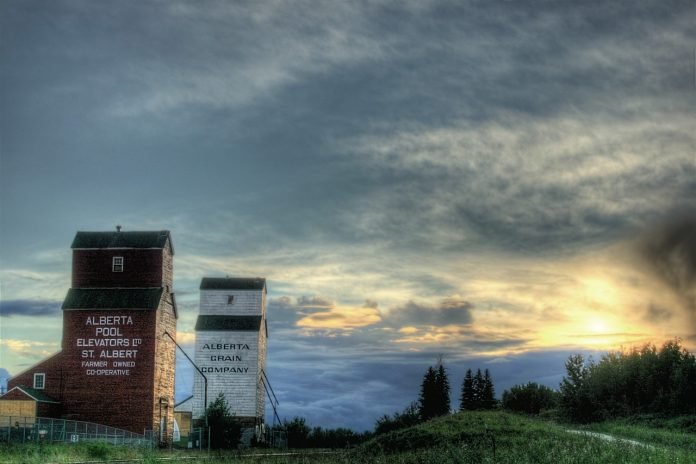A recent article at The Post Millennial (PM), “Trudeau’s war on farmers could create catastrophe as food prices soar,” claims that the Canadian government’s suppression of fertilizer use combined with heavy handed climate regulations are causing the price of food to rise in Canada. This is true, and is the standard and by this point expected result of environmental policies that target fossil fuels and farmers.
PM writer David Krayden says that the agriculture department in Canada wants Canadian farmers to reduce their use of fertilizers by 30 percent by 2030, while Trudeau claims the effort is voluntary, Krayden writes that “[t]here has been nothing voluntary about any of Trudeau’s climate change initiatives,” thus far.
Krayden is right to point that out. Allegedly a voluntary effort on the part of farmers, it will likely become mandated if the Trudeau government doesn’t get what they want. That is what happened in the Netherlands, when farmers voluntarily reduced nitrogen runoff by 70 percent, the government demanded another 50 percent, “voluntary or else.” Farms were bought out by the government, or seized, when they couldn’t meet government demands. Climate Realism discussed this issue, as well as similar attacks on agriculture in the name of climate change in other countries like those of the United Kingdom, in greater detail here, and here.
Trudeau’s government also has imposed federal carbon taxes on gasoline, natural gas, and propane, which Krayden writes “will cost farmers $978 million by 2030.” These numbers may well be underestimated, since farmers rely heavily on fuel for all their work, from planting to harvest to processing, not to mention transportation costs.
Krayden reports that Canadian farmers have already felt the burden of Trudeau’s climate policies, writing that “the net income for Canadian farmers fell 8.3 percent in 2022 and the expense of running a farm increased by 21.2 percent in 2022, the largest gain since 1974, when it was 22 percent.”
That date lines up well with the oil embargo of 1973-74, during which time the United States, Canada, among other countries, were targeted with an oil embargo by the members of the Organization of Arab Petroleum Exporting Countries, and oil prices shot up 300 percent.
This time, though, Canada’s cost troubles are self-inflicted, driven by government climate policy.
Alarmists often claim that agriculture is a major cause of climate change, particularly livestock raising, and anything having to do with synthetic fertilizer use. The alarmists are wrong. One study, referenced by Climate Realism here and here, found that in the United States, cattle and livestock ranching was responsible for only 4 percent of greenhouse gas emissions. Crops were responsible for only 10 percent. Canada’s own government admits that, according to their calculations, Canada emits only 1.5 percent of all global greenhouse gas emissions. If Canada’s agriculture sector is comparable to the United States’, that would mean Canadian agriculture’s contributions to global emissions is practically nonexistent already.
Recently, as Krayden explains in the PM article, the Liberal government passed a carbon tax bill through the House of Commons and included carve outs for farmers, but “the legislation was gutted by a Parliamentary committee and could be approved by the Senate of Canada without offering any financial relief to farmers.”
That bill could now include a tax on the heating and cooling of barns and greenhouses, meaning Canadian farmers may be limited in what they can grow, at reasonable cost, during their long northern winters.
Trudeau has also called for a “tax” on grocery stores in order to lower food prices, Krayden writes “without explaining what kind of tax it would be or how it would work to reduce prices.” However, Krayden says that obviously grocery stores will “certainly pass that shortfall onto farmers.” Increasing the tax burden on grocery stores, which already operate at very slim margins, will certainly not decrease the price of food. If those costs are somehow placed on farmers, like grocery stores demanding lower prices of produce, at the same time that the government is making it more expensive to operate a farm, food shortages and even higher prices are the only possible outcome.
The Canadian government is dead wrong to go after Canadian agriculture in order to stop climate change. Not only will their efforts, even if successful in reducing emissions, have no impact whatsoever, but they will only serve to raise food prices, put farmers out of business, and generally make Canadians suffer. The Post Millennial was right to hammer on this issue, hopefully the Canadian government takes note and removes the burdens on their farmers.


















Have we learned nothing from the experience in Sri Lanka?
“Enquiring minds want to know.”
The unreasonable policies for a know nothing like Trudeau is unfathomable even for his radical agenda! There’s no proof to warrant any of these claims that reducing fertilizers causes climate catastrophe! This is all bunk and since Trudeau is the master of bunkery he should be dethroned from his palatial position of Prime Minister! Anybody with an IQ above their shoe size should know these policies are reckless and unnecessary!
One might want to look up Lysenko. He told Stalin they could ‘cheap out’ on fertilizer, and do magic incantations over seeds. That was one of the reasons people starved in Ukraine.